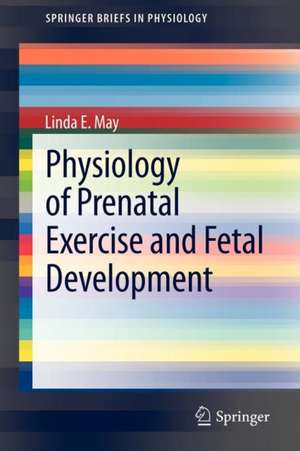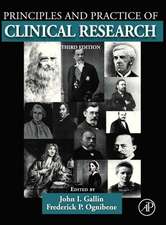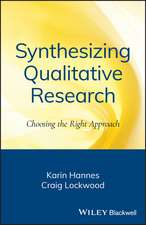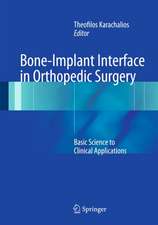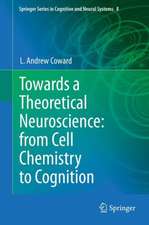Physiology of Prenatal Exercise and Fetal Development: SpringerBriefs in Physiology
Autor Linda E. Mayen Limba Engleză Paperback – 27 mar 2012
Preț: 355.59 lei
Preț vechi: 374.30 lei
-5% Nou
Puncte Express: 533
Preț estimativ în valută:
68.05€ • 71.55$ • 56.22£
68.05€ • 71.55$ • 56.22£
Carte tipărită la comandă
Livrare economică 17 aprilie-01 mai
Preluare comenzi: 021 569.72.76
Specificații
ISBN-13: 9781461434078
ISBN-10: 1461434076
Pagini: 52
Ilustrații: VIII, 44 p.
Dimensiuni: 155 x 235 x 3 mm
Greutate: 0.09 kg
Ediția:2012
Editura: Springer
Colecția Springer
Seria SpringerBriefs in Physiology
Locul publicării:New York, NY, United States
ISBN-10: 1461434076
Pagini: 52
Ilustrații: VIII, 44 p.
Dimensiuni: 155 x 235 x 3 mm
Greutate: 0.09 kg
Ediția:2012
Editura: Springer
Colecția Springer
Seria SpringerBriefs in Physiology
Locul publicării:New York, NY, United States
Public țintă
ResearchCuprins
Maternal Exercise Throughout Gestation and Fetal Development.- Effects of Maternal Exercise on Labor and Delivery.- Fetal and Postnatal Growth and Development.- Effect on Postnatal Health and Beyond.- What are the barriers and what is OK for an exercise study.- Conclusions.
Recenzii
From the reviews:
“This short book details the impact of maternal exercise on the developing baby. The purpose is to show the potential benefits and the absence of harm of expectant mothers engaging in light exercise in the perinatal period. This is a worthwhile objective and the author does a good job of achieving it. … There are few if any books detailing the impact of exercise in pregnancy, and this book has great potential.” (Anthony Shanks, Doody’s Review Service, July, 2012)
“This short book details the impact of maternal exercise on the developing baby. The purpose is to show the potential benefits and the absence of harm of expectant mothers engaging in light exercise in the perinatal period. This is a worthwhile objective and the author does a good job of achieving it. … There are few if any books detailing the impact of exercise in pregnancy, and this book has great potential.” (Anthony Shanks, Doody’s Review Service, July, 2012)
Textul de pe ultima copertă
Exercise during pregnancy maintains, and in some cases improves, maternal fitness and physical capacity, significantly decreases risk of developing preeclampsia, hypertension, gestational diabetes mellitus, decreases weight gain, and improves attitude and mental state. Placental adaptations have been discovered recently that indicate an increase in blood flow and nourishment to the fetus. This new SpringerBrief in Physiology explores the newest research findings on how exercise influences the fetus in utero and beyond. Physiology of Prenatal Exercise and Fetal Development reviews the current findings of how maternal exercise throughout gestation influences fetal development of key organ systems, and will also encompass the relationship between maternal activity level and fetal, birth, and neonatal effects. This information will help researchers and scientists better understand the physiological effects of exercise during pregnancy on offspring development.
Caracteristici
Explores the newest research findings on how exercise influences the fetus in utero and beyond Examines the relationship between maternal activity level and fetal, birth, and neonatal effects Describes current findings of how maternal exercise throughout gestation influences fetal development of key organ systems Includes supplementary material: sn.pub/extras
Descriere
Explores the newest research findings on how exercise influences the fetus in utero and beyond Examines the relationship between maternal activity level and fetal, birth, and neonatal effects Describes current findings of how maternal exercise throughout gestation influences fetal development of key organ systems Exercise during pregnancy maintains, and in some cases improves, maternal fitness and physical capacity, significantly decreases risk of developing preeclampsia, hypertension, gestational diabetes mellitus, decreases weight gain, and improves attitude and mental state.
